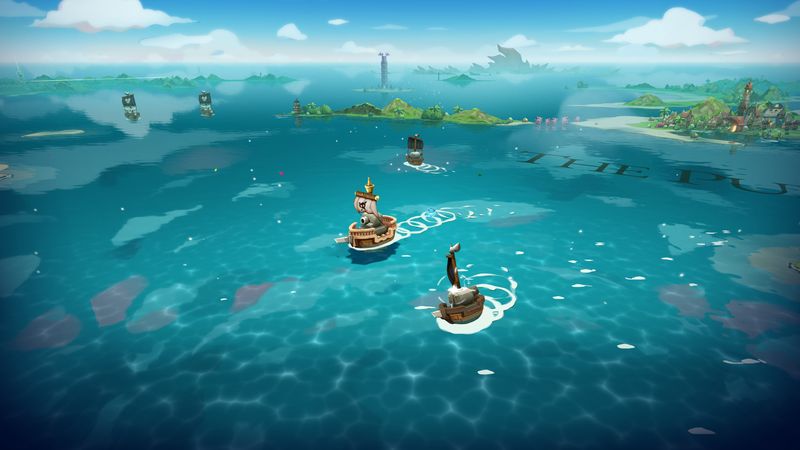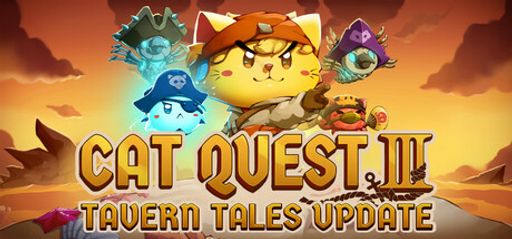 Diving deep into complex games feels natural for me, and Cat Quest III by The Gentlebros (published by Kepler Interactive) shines. The studio first formed in Singapore in 2016, building Cat Quest I and II in Unity, and since then they’ve refined their craft. Meanwhile, Steam reviews praise its charm and fresh scale. Players love the bigger world and ship battles, though some note a few slow openings. Nevertheless, the fun never stops once you set sail.
Diving deep into complex games feels natural for me, and Cat Quest III by The Gentlebros (published by Kepler Interactive) shines. The studio first formed in Singapore in 2016, building Cat Quest I and II in Unity, and since then they’ve refined their craft. Meanwhile, Steam reviews praise its charm and fresh scale. Players love the bigger world and ship battles, though some note a few slow openings. Nevertheless, the fun never stops once you set sail.
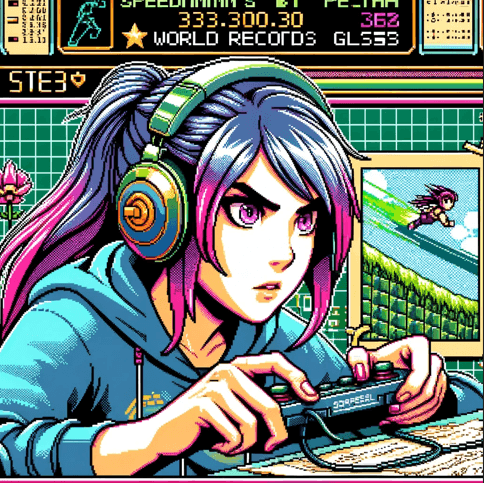 When it comes to runs, timing matters in Cat Quest III. Reports mention minor frame drops on big battles, yet a quick GPU tweak fixed them. In addition, Kepler Interactive delivers patches fast, so you rarely stay stuck long. Although pacing can lag at sea when quests pile up, fast travel options let you zip across islands and keep the adventure flowing.
When it comes to runs, timing matters in Cat Quest III. Reports mention minor frame drops on big battles, yet a quick GPU tweak fixed them. In addition, Kepler Interactive delivers patches fast, so you rarely stay stuck long. Although pacing can lag at sea when quests pile up, fast travel options let you zip across islands and keep the adventure flowing.
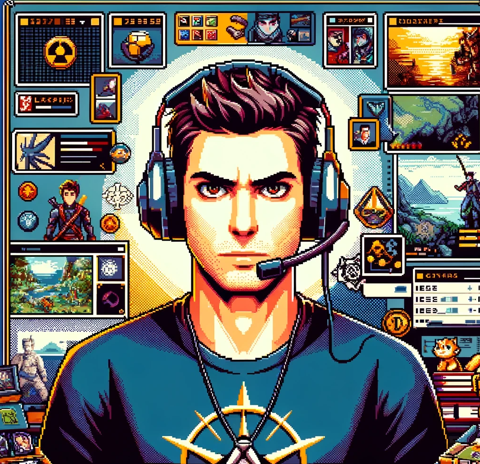 Achievements and exploration quickly became my obsession. With 30 of them available, completion takes about ten hours. Furthermore, each island looks unique and offers rewarding treasure hunts. While a few quest logs lacked clarity, journal hints smooth things out. As a result, the sense of discovery remains strong, and completionists can enjoy the chase without frustration.
Achievements and exploration quickly became my obsession. With 30 of them available, completion takes about ten hours. Furthermore, each island looks unique and offers rewarding treasure hunts. While a few quest logs lacked clarity, journal hints smooth things out. As a result, the sense of discovery remains strong, and completionists can enjoy the chase without frustration.
 Across the Purribean, secrets wait in pirate caves, rare loot caches, and quirky NPC encounters. At first, the absence of ability trees feels unusual. Yet, upgrading gear and spells stays engaging throughout. Moreover, local co-op by Kepler Interactive makes exploring with friends a delight, ensuring both solo and group play shine equally.
Across the Purribean, secrets wait in pirate caves, rare loot caches, and quirky NPC encounters. At first, the absence of ability trees feels unusual. Yet, upgrading gear and spells stays engaging throughout. Moreover, local co-op by Kepler Interactive makes exploring with friends a delight, ensuring both solo and group play shine equally.
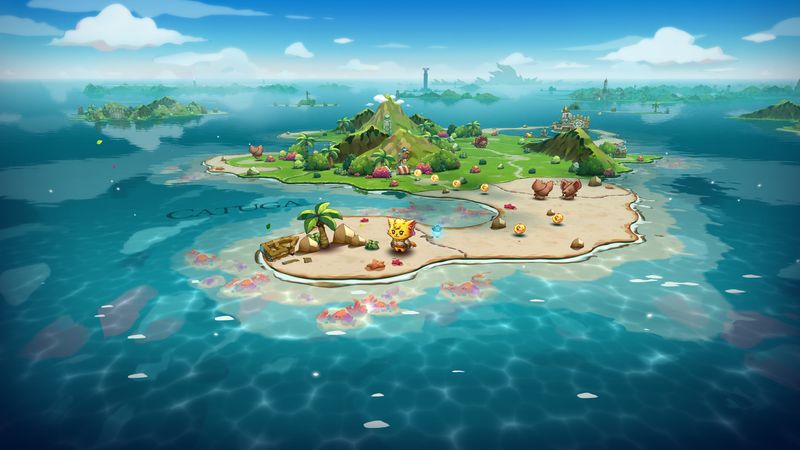
 Combat refinement stands out as a highlight. Tighter combos and on-the-fly weapon swapping bring comparisons to Hades’ swift loops. Meanwhile, spells and the blunderpuss gun mix ranged and melee combat effectively. In addition, each weapon displays clear stats through Unity’s framework, supporting quick decision-making mid-battle.
Combat refinement stands out as a highlight. Tighter combos and on-the-fly weapon swapping bring comparisons to Hades’ swift loops. Meanwhile, spells and the blunderpuss gun mix ranged and melee combat effectively. In addition, each weapon displays clear stats through Unity’s framework, supporting quick decision-making mid-battle.
 Cutscenes can be skipped, and ship-to-shore transitions happen instantly. Thanks to these design choices, optimal routes across islands are easier to plan. The fast weapon swap button cuts delays, while seconds can be shaved off runs by skipping repetitive travel.
Cutscenes can be skipped, and ship-to-shore transitions happen instantly. Thanks to these design choices, optimal routes across islands are easier to plan. The fast weapon swap button cuts delays, while seconds can be shaved off runs by skipping repetitive travel.
 Upgrades to ships bring new layers of customization. Sails and cannons can be tuned, and I tested every type across different zones. Eventually, I found a hidden upgrade that allowed blasting land enemies from the deck—a moment that genuinely made me smile.
Upgrades to ships bring new layers of customization. Sails and cannons can be tuned, and I tested every type across different zones. Eventually, I found a hidden upgrade that allowed blasting land enemies from the deck—a moment that genuinely made me smile.
 Free-roaming exploration defines the journey. Players can either follow clues or wander aimlessly, and I often veered off main quests to uncover buried chests. Ultimately, the open design recalls Sea of Thieves’ invitation to explore without strict limits.
Free-roaming exploration defines the journey. Players can either follow clues or wander aimlessly, and I often veered off main quests to uncover buried chests. Ultimately, the open design recalls Sea of Thieves’ invitation to explore without strict limits.
 The story opens with a loyal spirit companion guiding the hero. Meanwhile, the pirate king’s pursuit of the Northern Star adds an epic scope. Dialogue maintains The Gentlebros’ trademark puns, and according to their Kepler Interactive interview, they aimed for more narrative depth this time.
The story opens with a loyal spirit companion guiding the hero. Meanwhile, the pirate king’s pursuit of the Northern Star adds an epic scope. Dialogue maintains The Gentlebros’ trademark puns, and according to their Kepler Interactive interview, they aimed for more narrative depth this time.
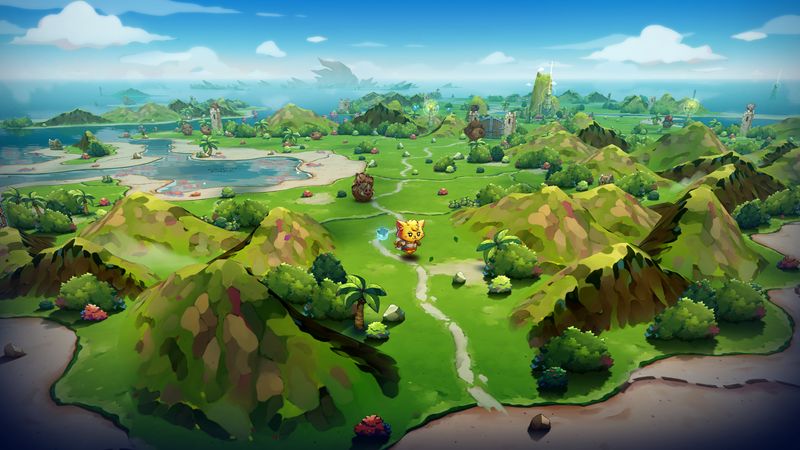
 During speed runs, dialogue is often skipped. However, standout puns like “meow-tiny” are worth catching. The writers balance humor with a hero’s journey arc, ensuring scenes flow briskly once you know the triggers.
During speed runs, dialogue is often skipped. However, standout puns like “meow-tiny” are worth catching. The writers balance humor with a hero’s journey arc, ensuring scenes flow briskly once you know the triggers.
 Side quests expand NPC backstories in charming ways. For example, a sea-cat family quest chain revealed lore about past pirate wars. Importantly, these threads tie into the main plot, culminating on the final island.
Side quests expand NPC backstories in charming ways. For example, a sea-cat family quest chain revealed lore about past pirate wars. Importantly, these threads tie into the main plot, culminating on the final island.
 Redemption arcs add emotional weight. The second-in-command Pi-rat’s storyline proved choices matter, while world logs scatter lore fragments everywhere. Consequently, history is pieced together through carvings, notes, and environmental storytelling.
Redemption arcs add emotional weight. The second-in-command Pi-rat’s storyline proved choices matter, while world logs scatter lore fragments everywhere. Consequently, history is pieced together through carvings, notes, and environmental storytelling.
 Bright colors and fluid animation dominate the art direction. The 2.5D layering adds depth to forests and caves, while Gentlebros cited Studio Ghibli as inspiration. Altogether, the presentation creates a vibrant world full of life.
Bright colors and fluid animation dominate the art direction. The 2.5D layering adds depth to forests and caves, while Gentlebros cited Studio Ghibli as inspiration. Altogether, the presentation creates a vibrant world full of life.
 Performance holds up well across platforms. Both PC and Switch hit steady 60fps in open seas. Docked Switch dips slightly during heavy fights but remains playable. On PC, max settings sharpen lighting and effects impressively.
Performance holds up well across platforms. Both PC and Switch hit steady 60fps in open seas. Docked Switch dips slightly during heavy fights but remains playable. On PC, max settings sharpen lighting and effects impressively.
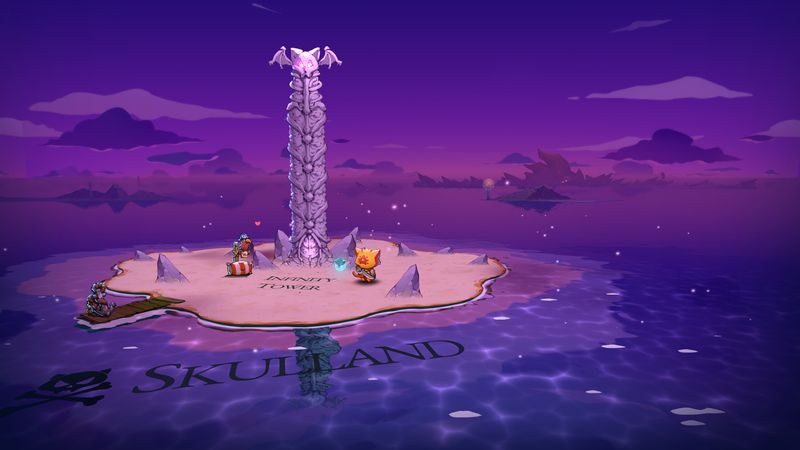
 Small details enhance the sense of discovery. Treasure chests display unique designs, islands showcase diverse flora, and hidden cat carvings on dungeon walls create fun micro-finds.
Small details enhance the sense of discovery. Treasure chests display unique designs, islands showcase diverse flora, and hidden cat carvings on dungeon walls create fun micro-finds.
 Visual polish extends to environmental effects. Water reflections and wave animations stand out, while glowing underwater sections contrast with the dark pirate caves. Beaches, meanwhile, look bright and inviting.
Visual polish extends to environmental effects. Water reflections and wave animations stand out, while glowing underwater sections contrast with the dark pirate caves. Beaches, meanwhile, look bright and inviting.
 Music completes the atmosphere beautifully. Pirate-themed tunes mix with piano riffs, each biome gaining its own mood. Additionally, Kepler Interactive revealed they hired an indie composer to preserve the series’ trademark charm.
Music completes the atmosphere beautifully. Pirate-themed tunes mix with piano riffs, each biome gaining its own mood. Additionally, Kepler Interactive revealed they hired an indie composer to preserve the series’ trademark charm.
 Audio cues influence gameplay as well. Parry timing benefits from sharp sound signals, while cannon roars warn of incoming Pi-rat ships. These details enhance combat precision.
Audio cues influence gameplay as well. Parry timing benefits from sharp sound signals, while cannon roars warn of incoming Pi-rat ships. These details enhance combat precision.
 Hidden rooms reveal themselves through subtle audio. For instance, faint echoes signal secret doors, guiding players to bonus dungeons if they’re attentive.
Hidden rooms reveal themselves through subtle audio. For instance, faint echoes signal secret doors, guiding players to bonus dungeons if they’re attentive.
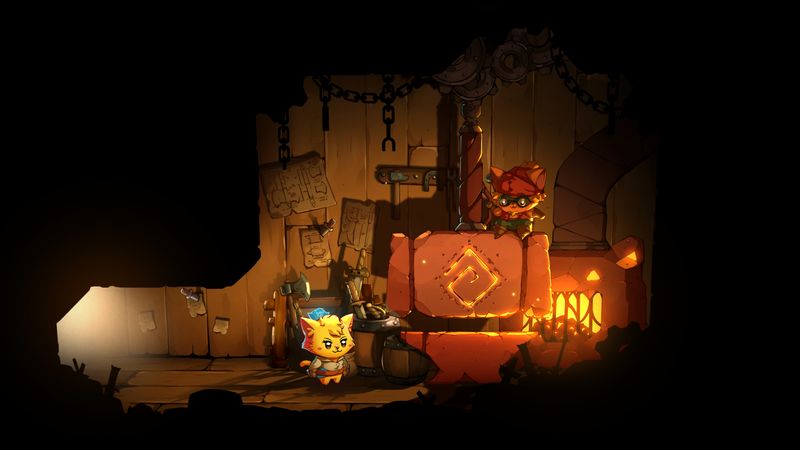
 Voice work stays minimal but effective. Simple lines, humorous grunts, and playful meows fit the game’s lighthearted tone perfectly.
Voice work stays minimal but effective. Simple lines, humorous grunts, and playful meows fit the game’s lighthearted tone perfectly.
 Character arcs grow steadily as the journey unfolds. The hero begins naive but gains resolve, while the spirit cat mentor offers guidance throughout. Meanwhile, the Pirate King develops surprising layers, and each villain carries a clear motive that fits the broader narrative.
Character arcs grow steadily as the journey unfolds. The hero begins naive but gains resolve, while the spirit cat mentor offers guidance throughout. Meanwhile, the Pirate King develops surprising layers, and each villain carries a clear motive that fits the broader narrative.
 Boss fights provide consistent thrills. Even during speedruns, enemies grow stronger with each attempt. Their evolving attack patterns demand attention, which keeps battles tense and replayable instead of repetitive.
Boss fights provide consistent thrills. Even during speedruns, enemies grow stronger with each attempt. Their evolving attack patterns demand attention, which keeps battles tense and replayable instead of repetitive.
 Recurring NPCs add life to the world. Dockmaster Lulu, for example, appears in multiple quests and gains new dialogue when revisited. Because of this, islands feel more alive and evolving over time.
Recurring NPCs add life to the world. Dockmaster Lulu, for example, appears in multiple quests and gains new dialogue when revisited. Because of this, islands feel more alive and evolving over time.
 Allies come with unique charm as well. A Pi-rat treasure hunter eventually joins as a co-op partner. His story adds both emotion and camaraderie, strengthening the sense of shared adventure.
Allies come with unique charm as well. A Pi-rat treasure hunter eventually joins as a co-op partner. His story adds both emotion and camaraderie, strengthening the sense of shared adventure.
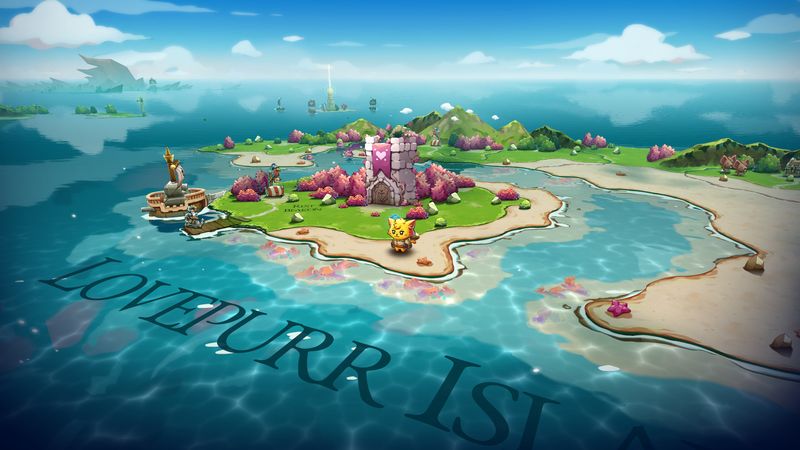
 Combat difficulty scales smoothly. Early enemies teach mechanics, while later dungeons test mastery of combos. By the time bosses appear, quick reflexes become essential to survive.
Combat difficulty scales smoothly. Early enemies teach mechanics, while later dungeons test mastery of combos. By the time bosses appear, quick reflexes become essential to survive.
 Endgame challenges push skills even further. The final sea gauntlet delivers relentless ship waves, forcing zigzag maneuvers to trim survival time. These encounters sharpen both strategy and reflex.
Endgame challenges push skills even further. The final sea gauntlet delivers relentless ship waves, forcing zigzag maneuvers to trim survival time. These encounters sharpen both strategy and reflex.
 Optional zones help balance difficulty. Leopard islands offer XP grinding, letting players prepare for harder bosses. As a result, I only needed one extra level to handle the toughest fight.
Optional zones help balance difficulty. Leopard islands offer XP grinding, letting players prepare for harder bosses. As a result, I only needed one extra level to handle the toughest fight.
 Playtime fits both casual and dedicated players. Most finish in 10–12 hours, though side quests and exploration can stretch the journey. Moreover, drop-in/drop-out co-op ensures anyone can join without commitment.
Playtime fits both casual and dedicated players. Most finish in 10–12 hours, though side quests and exploration can stretch the journey. Moreover, drop-in/drop-out co-op ensures anyone can join without commitment.
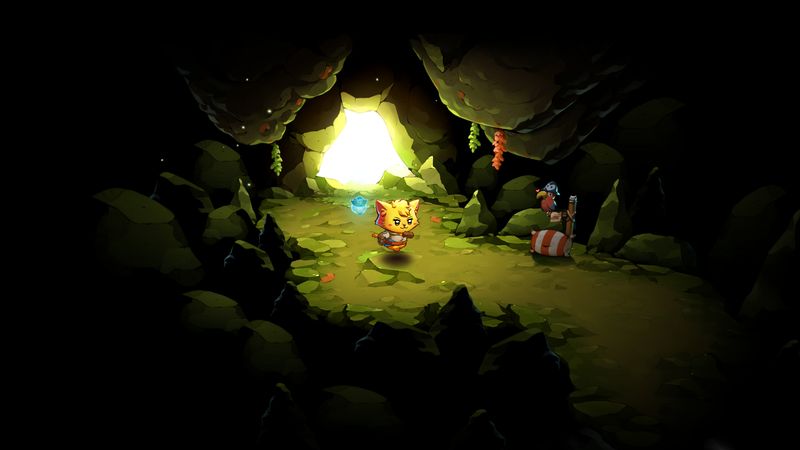
 Replay value stays strong through multiple builds. Gear and spells support diverse styles, from pure melee to full magic runs. Consequently, experimentation makes second and third playthroughs worthwhile.
Replay value stays strong through multiple builds. Gear and spells support diverse styles, from pure melee to full magic runs. Consequently, experimentation makes second and third playthroughs worthwhile.
 Challenge runs further extend enjoyment. My no-ship run forced mastery of dungeons alone, transforming the experience into a rewarding twist.
Challenge runs further extend enjoyment. My no-ship run forced mastery of dungeons alone, transforming the experience into a rewarding twist.
 Post-game content adds yet more incentive. Collecting all 30 achievements or chasing hidden puzzles after the credits extends playtime and deepens engagement.
Post-game content adds yet more incentive. Collecting all 30 achievements or chasing hidden puzzles after the credits extends playtime and deepens engagement.
 Story progression also allows freedom. Clues can be followed in various orders, making each playthrough feel fresh. That non-linear design enhances replayability significantly.
Story progression also allows freedom. Clues can be followed in various orders, making each playthrough feel fresh. That non-linear design enhances replayability significantly.
 Final impressions highlight its strengths. Cat Quest III stands out with tighter combat and a richer story, building on its predecessors in leaps. For many, this may feel like Gentlebros’ best work yet.
Final impressions highlight its strengths. Cat Quest III stands out with tighter combat and a richer story, building on its predecessors in leaps. For many, this may feel like Gentlebros’ best work yet.
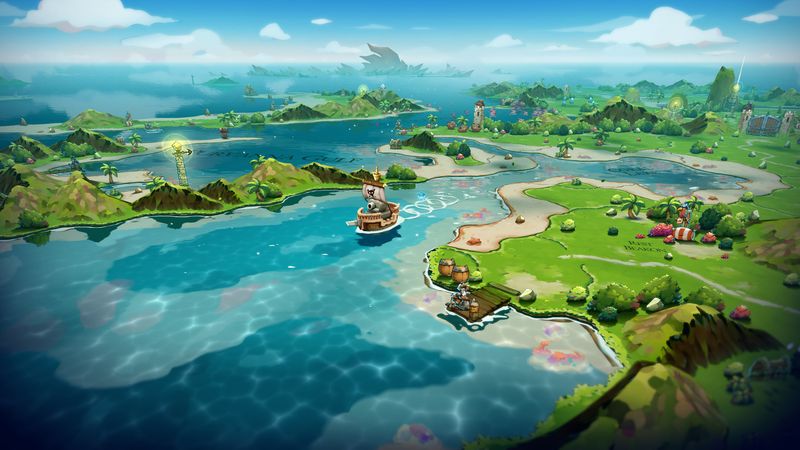
 Stability and speedrunning support round things out. Practice routes flow smoothly, while reliable performance ensures top splits remain achievable.
Stability and speedrunning support round things out. Practice routes flow smoothly, while reliable performance ensures top splits remain achievable.
 Completionists find plenty to enjoy. Collectibles and achievements shine, rewarding anyone who loves filling maps and chasing goals.
Completionists find plenty to enjoy. Collectibles and achievements shine, rewarding anyone who loves filling maps and chasing goals.
 Exploration invites creativity at every step. Rather than forcing paths, the game encourages players to roam and craft their own tales.
Exploration invites creativity at every step. Rather than forcing paths, the game encourages players to roam and craft their own tales.
 Similar adventures await if you crave more. Oceanhorn: Monster of Uncharted Seas brings ship battles and a warm art style. Moonlighter blends dungeon crawling with town life, while Shantae and the Seven Sirens offers vibrant 2.5D action. For classic co-op, Secret of Mana remains timeless, and Spiritfarer delivers cozy, heartfelt storytelling on the sea.
Similar adventures await if you crave more. Oceanhorn: Monster of Uncharted Seas brings ship battles and a warm art style. Moonlighter blends dungeon crawling with town life, while Shantae and the Seven Sirens offers vibrant 2.5D action. For classic co-op, Secret of Mana remains timeless, and Spiritfarer delivers cozy, heartfelt storytelling on the sea.
